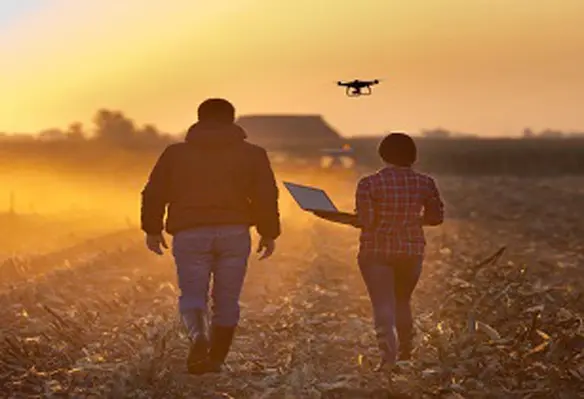As Southeast Asian farmers steadily embrace smart farming, Japanese farm equipment maker, Kubota, is jumping at the opportunity to offer new products to an already extensive customer base
Kubota, best known for its tractors, has developed an app for farmers to enter data whenever they till the soil or spread manure.
The data stored in the app can save time and labour, bringing the 21st century into a profession that largely has relied on tradition and intuition. The app can monitor fuel usage in farm equipment which can help cut down on wasteful run times. Owing to its positive response, plans are in place to monetise the app with fees this year.
Kubota plans to have the app track data from connected farm equipment, allowing it to record usage times and alert farmers when to change batteries or other components, among other functions. Meanwhile, the company has spent time studying other ways to make farming more high tech. Kubota has conducted nearly 100 field tests, from flying drones used to spread fertilisers, to designing irrigation systems in Thailand to improve agricultural efficiency.
Southeast Asia is marked by low yields of crops. In Thailand and Myanmar, a single paddy produces less than half the rice of a comparable paddy in Japan, according to Thailand's Office of Agricultural Economics.
Although most of the land in Thailand is level, crop yields are mainly at the mercy of the weather due to underdeveloped irrigation systems. The multitude of small farmers means that farmland is far less consolidated compared with advanced nations.
The introduction of tech solutions is expected to upgrade management of small farms, leading to improved quality and added crop value.
Globally, the market for smart farming stood at about US$13.2bn in 2019, according to the Japan Patent Office, growing more than 20% from 2017. The market is projected to expand further to about US$22bn in 2025, the growth led by western nations.
The smart farming market in the Association of Southeast Asian Nations is estimated to rise to about US$190mn in 2025 from roughly US$160mn in 2019. Although the pace is slower than in the west, ASEAN's market is expected to steadily grow.
Furthermore, countries in Southeast Asia have rolled out their own digitisation initiatives. For instance, the Thai government's economic plan Thailand 4.0 aims to bring artificial intelligence and smart devices and equipment to the agricultural sector.
The Philippines is partnering with the South Korean government to explore studies on rice and bananas. In Vietnam, agricultural production models have been introduced in Hanoi that employ robotic and tech solutions.
Southeast Asia has served as a stronghold for Japanese-made farm equipment. Kubota holds an 80% share of tractors in Thailand, and the company is first in ASEAN among rice farmers.




